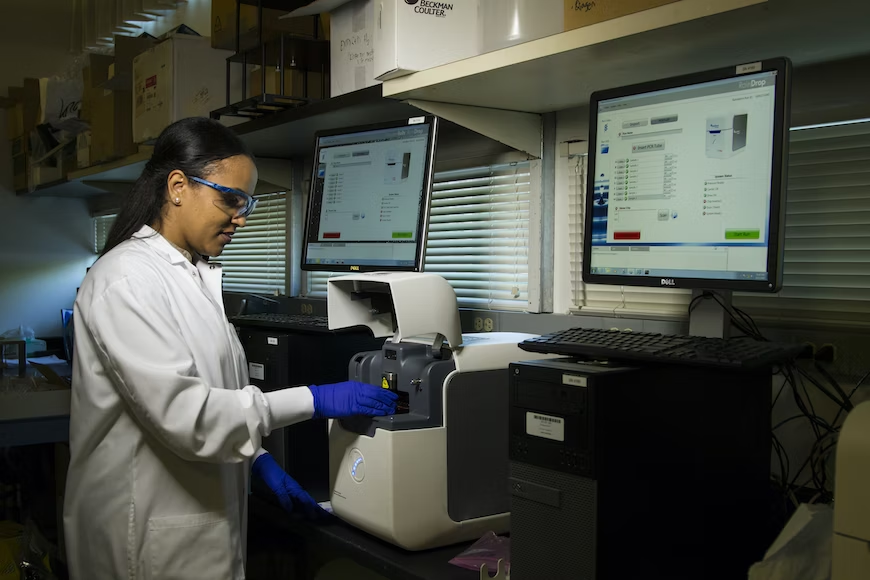How Pathology Lab Software Safeguards Sensitive Information
- nethajimocdoc
- May 24, 2023
- 3 min read
Updated: Dec 27, 2023

Introduction:
In the digital age, data security has become a critical concern for pathology laboratories. With the increasing adoption of technology and the reliance on electronic data management systems, the need for robust security measures has never been greater. Pathology lab software, also known as laboratory software, offers advanced features and functionalities that can significantly enhance data security within the laboratory setting. In this blog post, we will explore how pathology lab software can play a pivotal role in safeguarding sensitive data and protecting patient information.
Secure Data Storage:
Pathology lab software provides a secure platform for storing and managing vast amounts of laboratory data. It utilizes robust encryption algorithms to ensure data confidentiality and integrity. By storing data in a centralized database, lab software minimizes the risk of data loss or unauthorized access. Additionally, it enables role-based access control, allowing administrators to assign specific privileges to different user roles within the lab. This layered approach to data storage enhances data security and prevents unauthorized individuals from accessing sensitive information.
Access Control and Authentication:
Pathology lab software employs stringent access control mechanisms to regulate user access to confidential data. It requires user authentication through unique usernames and passwords, ensuring that only authorized personnel can access the system. Furthermore, advanced lab software solutions support two-factor authentication, adding an extra layer of security by requiring additional verification steps, such as fingerprint or token-based authentication. These access control measures help prevent unauthorized access to the software and protect sensitive patient data.
Audit Trails and Activity Logs:
One of the key features of pathology lab software is the ability to maintain detailed audit trails and activity logs. These logs capture and record all system activities, including user actions, data modifications, and system changes. By keeping a comprehensive record of user interactions and system events, lab software provides a transparent view of data usage and enables traceability. In the event of a security breach or suspicious activity, audit trails play a crucial role in identifying the source of the issue and taking appropriate action to mitigate potential risks.
Data Backup and Disaster Recovery:
Pathology lab software incorporates robust data backup and disaster recovery mechanisms. Regular and automated data backups ensure that critical information is protected and can be restored in the event of data loss due to system failure, natural disasters, or cyberattacks. Lab software solutions often offer redundant server configurations and cloud-based storage options to enhance data resilience and availability. By implementing effective backup and recovery strategies, lab software minimizes the impact of potential data breaches or system disruptions.
Compliance with Regulatory Standards:
Pathology labs must adhere to strict regulatory standards, such as HIPAA (Health Insurance Portability and Accountability Act) or GDPR (General Data Protection Regulation). Pathology lab software provides features that support compliance with these regulations, including data encryption, consent management, and privacy controls. By aligning with regulatory requirements, lab software ensures that patient data is handled with the highest level of confidentiality and protects the laboratory from legal and financial repercussions.
Conclusion:
In an era of increasing digitalization and data vulnerability, pathology lab software emerges as a powerful tool for enhancing data security within the laboratory setting. With its secure data storage, access control, and authentication mechanisms, detailed audit trails, robust backup and recovery capabilities, and compliance support, lab software offers a comprehensive solution to protect sensitive patient information. By leveraging the advanced features of pathology lab software, laboratories can foster a secure environment, mitigate potential risks, and uphold the trust and confidentiality of their patients.


Comments